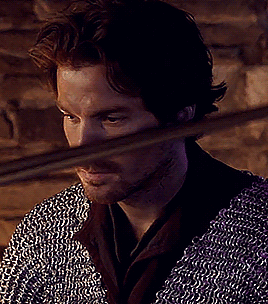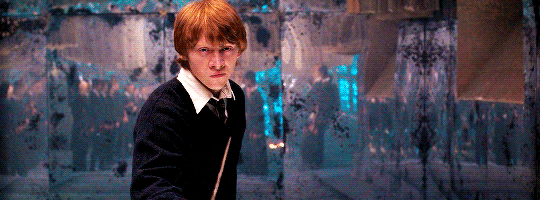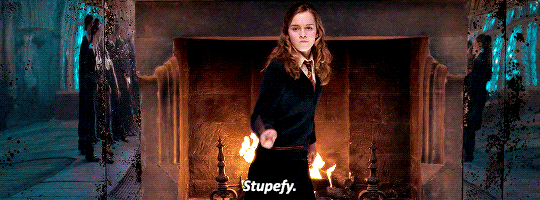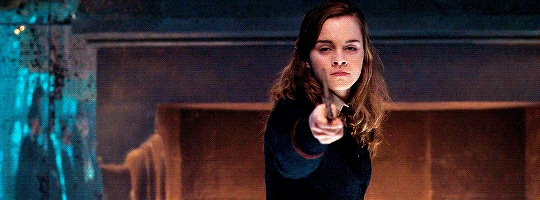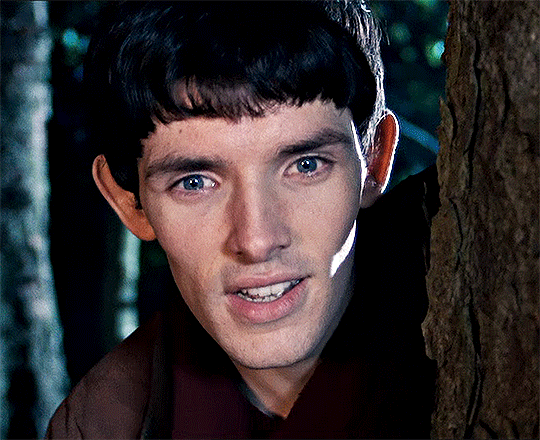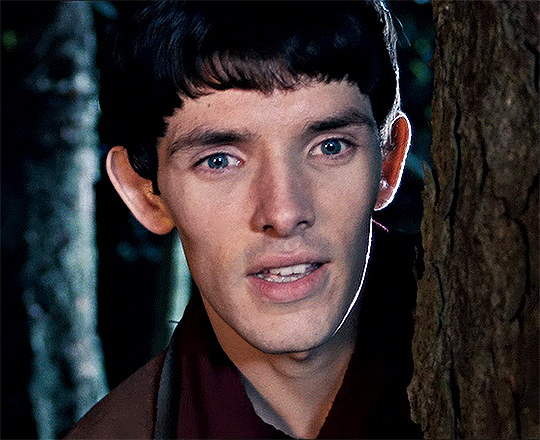Photo




harry: this is normal right?
ron: ………………………..no
755 notes
·
View notes
Text
We needed more Hvitty and Alfred in the show. Alfred had the while rebellion storyline, Viking invisions (elsewhere made it seem like it was happening often, they had to ask what vikings these were) and solidifying his role as King - all for the most part of screen 😔
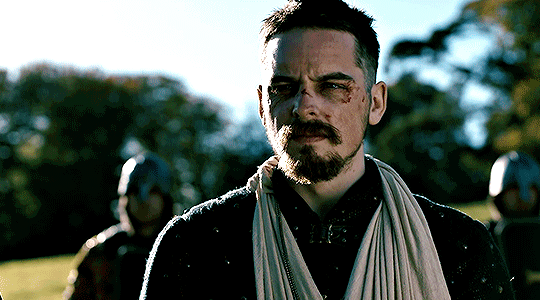
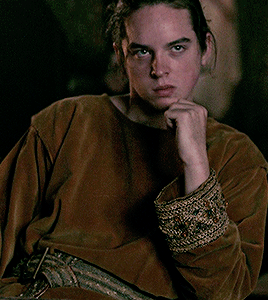
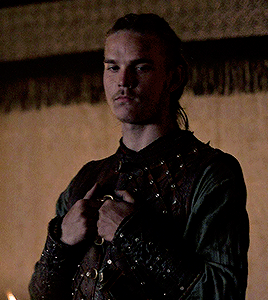
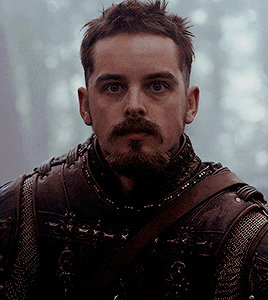

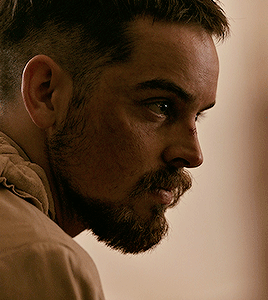

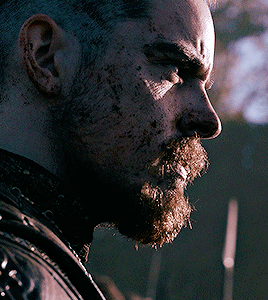

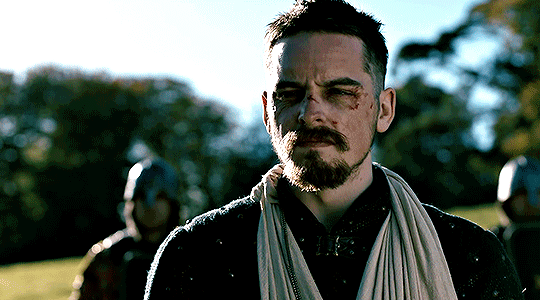
Hvitserk and Alfred's relation was pretty chilled, because he need that peace as a Christian and that peace was offered to him by Alfred. There's a mutual respect. Alfred knew Hvitserk was a great warrior and needed him on his team. - Marco Ilso
31 notes
·
View notes
Text
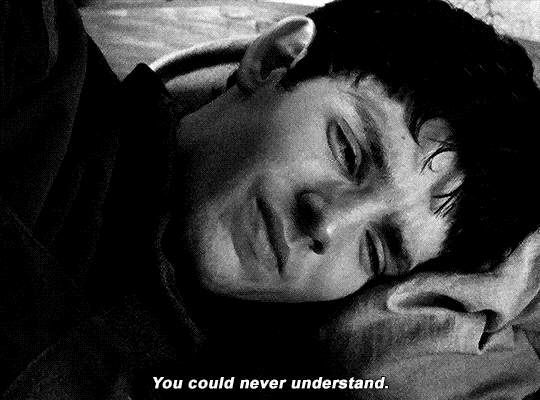


COLIN MORGAN as MERLIN
MERLIN — 2.09 • The Lady of the Lake
1K notes
·
View notes
Text
Harry and Voldemort: share brother wands, share parts of souls, are two sides of the same coin, send dreams and visions to each other through their mind, both grew up in similar circumstances, both are orphans, and have been enemies since (Harry’s) birth… and you expect me *not* to ship them?
470 notes
·
View notes
Text
You know what's scary to think about? How inbreeding caused the gaunts to basically die out. How black madness is so prominent — and one or two more generation they might end up where Gaunts were (if they continued the marriage in family for a “pure bloodline”). Imagine, in a world where Voldemort actually won, and if we follow the theory of Voldemort wanting to destroy the world; just imagine, purebloods basically killing themselves by following this line of marriage — Imagine, how horrifying the results would be as they slowly die out.
37 notes
·
View notes
Text

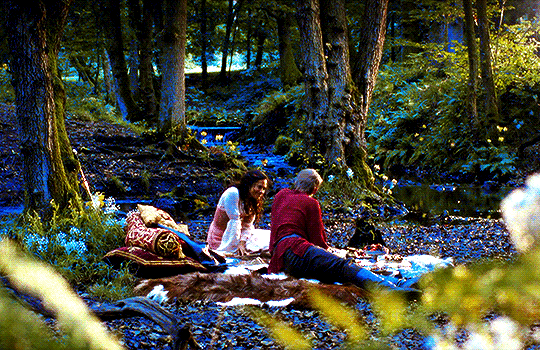
MERLIN
3.10 | Queen of Hearts
705 notes
·
View notes
Note
Pre wwii what would conditions in the orphanage Tom grew up in hsve been like? (Ie in the 1926-37 period)
Honestly, conditions would've been pretty shit. Firstly disease was rife, especially as the East End (where Wool's presumably is) was a slum throughout the Industrial Revolution and into the 20th century (with it only really changing post WWII). Tom would be familiar with stuff like mumps and whooping cough, even if he never got sick himself due to magic protecting him (as we see with Harry). But they'd also be other diseases like tuberculosis, diphtheria, scarlet fever, rickets, polio and even the flu. It's likely multiple children at the orphanage would have physical disabilities due to polio maybe even with callipers (a permanent kind of splint to help people who'd suffered from polio walk). While children would often be isolated with most illnesses, it would be incredibly difficult for an orphanage to do so, and it's probable that children died as bouts of sickness and disease spread through the orphanage. Kids who were one day at dinner are gone the next.
The first legal precedent for adopting children occurs with the Adoption of Children Act in 1926, so legal adoption how we understand it today, was fairly new. Children were lined up on Sundays, washed and in their best clothes (after attending church!) for rich people to adopt, but it tended to be a way for getting free labour rather than out of an actual desire to have children to love and care for.
I'm not sure what JKR was basing her orphanage off (likely something modern), but Tom probably wouldn't have gotten his own room, even if he was considered 'insane'. There simply wasn't enough room. Children shared a dormitory, one that could be overstuffed and cramped, sometimes even with several children to a bed. Food was similar — it was a cramped long hall (almost like a smaller, horrible version of the great hall) with rows of tables and children waiting their turn for a meal. They were probably only given one or two a day; likely gruel in the morning and bread with a stew in the evening. Tom's diet would've been vegetarian because meat was insanely expensive, although he may have had meat on Christmas and potentially Sundays if the orphanage could afford it.
On that note, Tom and the other orphans would've been Christian, most likely CoE. Although Catholic orphanages did exist, Wool's is not named after a Saint and so was more likely Protestant. Tom would've gone to church every Sunday, perhaps in a chapel on Wool's grounds, although if not, it would've been at the local church. He also would've been expected to pray. He'd go to Sunday School alongside normal school (which would've been at the local public school or perhaps, if Wool's was especially large, which I don't think it was, there would've been one of the staff who could teach or they'd bring someone in). For Christmas itself, Tom would likely get an orange which was incredibly special due to his diet likely not including fruit.
Tom would've shared everything, including clothes. He probably didn't even have underwear, and may sometimes have had to wear dresses/frocks, especially when he was younger, due to a lack of clothes. These clothes would've been stiff and itchy, potentially with lice. They would've been washed once a week, as with the orphans themselves (in large buckets!), and been hung out to dry on huge lines. Depending on how many clothes there were to go round, Tom would've spent this time in underwear (although sometimes orphans didn't even have this) or in another pair of clothes that had been worn by other children hundreds of times before. It's no wonder Tom stole — he literally had nothing, not even his own clothes (and perhaps not even underwear either).
Tom would've been expected to care for children younger than him, including babies, from a very young age. Even if he didn't enjoy it, Tom would've been good with young children and it's no wonder he was able to make Head Boy at Hogwarts because of it.
The Great Depression would've made these conditions worse. Although some of the conditions would've improved over the years, the Great Depression meant that everything was more expensive. Meals were probably downsized, if not cut entirely to one a day. The amount of kids at the orphanage probably rose during this time due to parents having to abandon children, which would've been especially prevalent in the East End which, as I've mentioned previously, was just slums and dockyard. Meat probably disappeared completely from Tom's diet, even at Christmas.
All in all, Tom's early life and conditions at the orphanage were grim. Kids died around him, conditions were cramped with diseases, illness and lice, he'd not even have his own clothes, meals would be limited, he'd spend his free time looking after kids younger than him and he'd fear being adopted. The roaring twenties were shit and the thirties shitter still. Hogwarts would've been the best thing that ever happened to Tom — it's no wonder he called it his home.
48 notes
·
View notes
Text
a story in three parts:
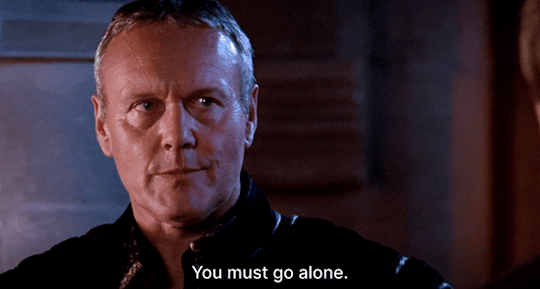
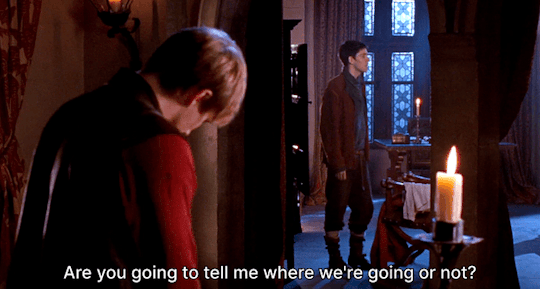

bbc merlin - 03x12 The Coming of Arthur, Part I
that's arthur's "alone....meaning....don't tell merlin where we're going so it still counts as a secret" face btw
261 notes
·
View notes
Note
wait how bougie was Tom Riddle Sr.? How nice would his Manor have been? Was he like an actually Lord with a title and stuff?
thank you very much for the ask, anon!
in half-blood prince, dumbledore refers to tom riddle sr. as "the squire's son" - which allows us to state with certainty that he was a minor aristocrat.
however, the word minor is important here.
there are - historically - two levels of aristocracy in britain. the first are the peers of the realm - which refers to families which hold one or more of the titles of duke, marquess, earl, or viscount. these are the elite of the elite - these gradations of nobility were created in the middle ages as a way of distinguishing those who held the titles from other noblemen, usually because of a close relationship [often one of blood or marriage or both] to the king.
the titles are hereditary by male primogeniture, and the holders - while this is no longer the case - used to have political power [such as the right to sit in the house of lords], simply by virtue of their birth.
[this is why they're called "peers" - it refers to them historically being close in status to royalty, and therefore expected to serve as royal advisors.]
there is another class of peer - a baronet - whose title is similarly hereditary, but whose position doesn't come historically with the right to sit in the lords or advise the king by virtue of birth. [baronets may - of course - have been members of parliament, or royal advisors selected at the king's discretion, but this would be separate from their title. a duke, in contrast, could historically expect to request a meeting with the king simply because he was a duke.]
while some families have historically been ennobled at the king's discretion, access to any of these titles is pretty much restricted to the small group of families who've held them for centuries.
but below the peers of the realm, there is a second, more minor class of aristocracy, the landed gentry - of which a village squire is a textbook example.
historically, what is meant by "landed" is an ability to live off of the rental income of one's country holdings, which would be leased to tenant farmers. that is, they are landlords in the original sense of the term - lords of the land. this is what tom sr. tells us his family does in half-blood prince:
“It’s not ours,” said a young man’s voice. “Everything on the other side of the valley belongs to us, but that cottage belongs to an old tramp called Gaunt, and his children. The son’s quite mad, you should hear some of the stories they tell in the village - ”
what is also meant by "landed" is that the family in question is of the upper-classes, but that they are still "commoners" - which in this context doesn't imply a value judgement, but which is a socio-legal term which simply indicates that they don't hold an aristocratic title such as duke, earl etc.
[and gentry families certainly aren't common in terms of financial standing... the most famous member of this class in literature? fitzwilliam darcy, whose ten thousand a year is something like thirteen million quid in today's money...]
gentry families might be very old - they might have received their lands from the king in the middle ages as a reward for knightly service, and it's interesting to imagine generations of gaunts and riddles brought up alongside each other in little hangleton - or they might be comparatively newer - tom sr.'s great-grandfather [feasibly born c.1810] could have been a self-made victorian industrialist who bought the lands from the original holder and established himself as gentry.
by 1900, it was becoming much harder for the gentry to live on rental income alone, and many would also have had jobs. these would have been elite, and very frequently were in politics, the civil service, the military, or the law. tom sr's father - whom the films call thomas, so let's go with that - might, for example, have served as a high-ranking officer in the army [including during the first world war], be the local magistrate, or be the local member of parliament.
in terms of titles, thomas riddle would almost undoubtedly be sir thomas - and this is how it would be correct to address him. but this title would be a courtesy, and it wouldn't be hereditary unless the riddles were also baronets [which it's entirely plausible that they were].
which is to say, tom sr. would not have a title while his father was alive - although he would have the right to be referred to formally in writing as mr thomas riddle esq. [esquire]. the correct form of verbal address for anyone other than friends and family would be to call him mr riddle, although the riddles' servants would probably refer to him as mister tom.
tom jr. would not have a title while his father or grandfather was alive. if the riddles were baronets, he would technically inherit the title after he kills the rest of the male line... but given that tom sr. never acknowledged him and his existence was presumably unknown to the riddles' lawyers this wouldn't be something which happened in reality. the estate's executors clearly took control of the riddles' property, the land was portioned off and sold, and the house became a standalone property for sale.
the riddle house - which is a name used informally for it in little hangleton, it would have a different "proper" name - is described in canon in ways which show that it's a typical manor house, which means it would look something like this:
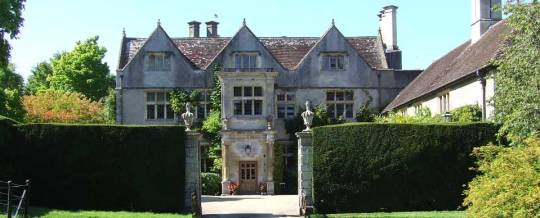
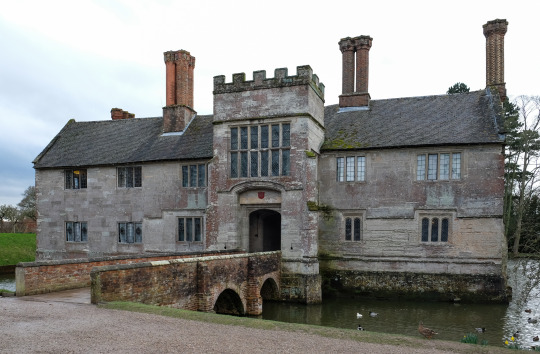
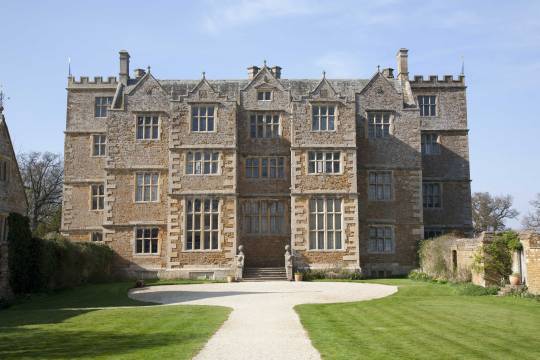
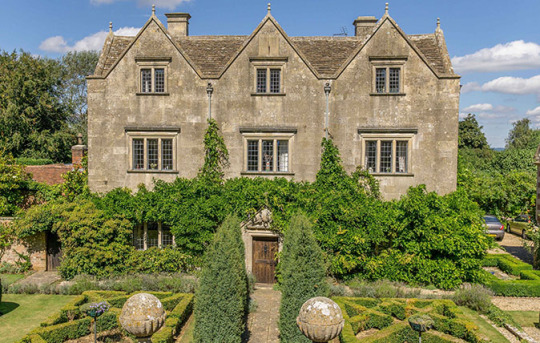
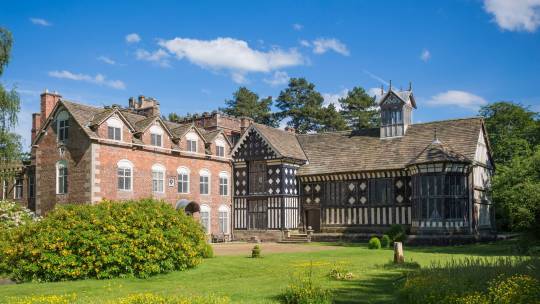
these houses are obviously very impressive, but they're tiny in size in comparison to the magnificent stately homes - places like blenheim palace, chatsworth, burghley house, holkham hall - lived in by the titled aristocracy. the riddles would entertain - for example - by giving house parties, dinner parties, hunting parties, etc., but they wouldn't have a ballroom or a dining hall capable of seating hundreds.
[they would probably also own a property - probably a flat or small house - in london.]
they would have servants, but not colossal numbers - they would undoubtedly have a butler but not footmen, and the upstairs maids would report to the butler since they probably wouldn't have a housekeeper. they canonically have a cook, who probably had one or two kitchen maids assisting, and they canonically have a gardener - frank bryce - who probably doesn't have any assistants. they may, depending on the size of the estate, have a gamekeeper. sir thomas undoubtedly had a secretary and a chauffeur, and his wife might have a lady's maid. tom sr. would have had a nanny and then been educated until at least the age of eight by a governess, but would then have attended a prep school [either day or boarding] until the age of thirteen, and then gone to a boarding school, from which he likely went on [on the basis of social class rather than talent] to oxford or cambridge.
the family would have enormous social influence locally. most people - and also businesses - in little hangleton would be their tenants, and they would also probably have a say over the appointment of the local clergyman [an important figure in the community in the nineteenth and early twentieth centuries], since the parish church is likely to have been something called a "living" - the thing which turns up again and again in jane austen - which means that the church and its parsonage technically belongs to the landowner, but is granted to the vicar as a freehold while he's in post.
gossip about the riddles' doings would also be the main source of local interest - the servants were dining out for months on tom sr.'s elopement and return.
so they're something resembling celebrities - but they're local celebrities. nobody in london - and even nobody in cities we can imagine are nearer to little hangleton, such as liverpool - would particularly know or care who they were. tom sr. might have made it into the london gossip columns if he was part of a particularly scandalous "set" [a group of friends] who socialised in the capital, but these mentions would have been fleeting - and the press would have been much more concerned by the doings of members of his set who were genuinely titled or who were legitimately famous.
[this is the reason why mrs cole doesn't recognise the name. if merope had said her son was to be named cecil beaton after his father, she may well have been prompted to hunt him down...]
so tom sr. is elite - but he's elite in a way which is extremely culturally-specific, and which is [just like the portrayal of aristocracy in the wizarding world - the blacks, for example, are far less aristocratic than the riddles in terms of canonical vibe] often exaggerated into the sort of pseudo-royal grand aristocracy which the british period-drama-industrial-complex makes such a big deal of.
and tom jr.'s character is affected by this in a series of extremely interesting ways.
by which i mean that, in terms of blood, he's probably the most aristocratic character in the series - the absence of grand aristocracy in the wizarding world would mean that [were he raised by his father] he would come from a social background which was equivalent [even as it was divided from them by virtue of being muggle] to any of his fellow slytherins, and would help him easily blend into their society because the manners, genre of socio-cultural reference points [he would recognise, for example, that quidditch heavily resembles both rugby and polo], accent and way of speaking etc. that he would possess would be broadly indistinguishable from those of his pureblood peers.
[this is why justin finch-fletchley and draco malfoy speak in essentially the same way.]
but he would then be given the enormous boost in cachet - one which would genuinely elevate him above the rest of his cohort - of his maternal line.
and we see in canon that this does bestow some privilege on him among his peers while he's in school:
Tom Riddle merely smiled as the others laughed again. Harry noticed that he was by no means the eldest of the group of boys, but that they all seemed to look to him as their leader.
“I don’t know that politics would suit me, sir,” he said when the laughter had died away. “I don’t have the right kind of background, for one thing.”
A couple of the boys around him smirked at each other. Harry was sure they were enjoying a private joke, undoubtedly about what they knew, or suspected, regarding their gang leader’s famous ancestor.
where he's let down socially is that people like slughorn - to whom he can't reveal his slytherin ancestry and hope to maintain cover for his wrongdoing - don't think he's come from anywhere particularly special. this is because he has a muggle father - absolutely - but it's even more that he has a muggle father who, since he left him to be raised in an orphanage, was presumably working-class.
what the young voldemort lacks is any socio-cultural familiarity with the muggle class performance which the class performance of the wizarding world parallels. abraxas malfoy boasting about how important his father is would be something a tom jr. raised by the riddles could match - "oh yes, my father gives to all sorts of causes too. in fact, he was invited to buckingham palace because of it." - establishing himself as an equal in terms of class and social influence even if he isn't an equal in blood.
what actually happens in canon is that the orphaned tom - with his uncouth manners and his working-class accent - has no hope of gaining any sort of social equality with his posh peers.
so he becomes determined to outrank - and humiliate and control - them.
88 notes
·
View notes
Text
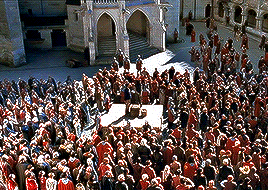
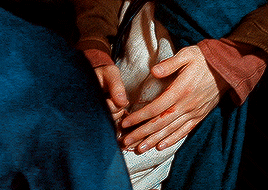

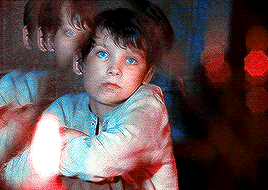
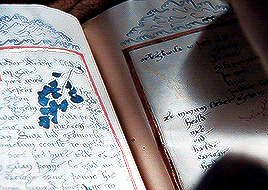
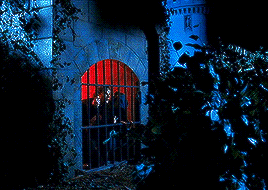

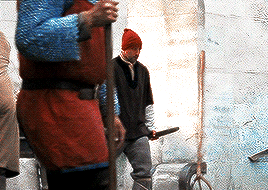
every episode of bbc merlin⇾ 1.08 The Beginning of the End
What if magic isn't something you choose; what if magic chooses you?
365 notes
·
View notes
Text

Mom Gaunt: Take care of your little brother.
Marvolo: I'm not your elf, mother...
230 notes
·
View notes
Photo





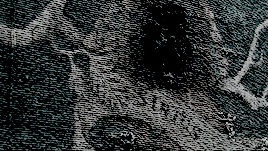
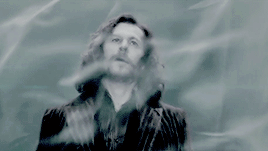

The world isn’t split into good people and Death Eaters. We’ve all got both light and dark inside us. What matters is the part we choose to act on. That’s who we really are.
1K notes
·
View notes
Text
cannot stop thinking about that meta that’s like “voldemort’s ultimate goal was to simply destroy the british wizarding world” because it makes so much sense. tom riddle was a poor, orphaned, assumed muggleborn boy with a (most likely) ‘commoner’ accent and a distaste for humanity who sorted into slytherin, the hogwarts house infamous for being filled with loud rich bigots. tom riddle, with his background, could not have possibly been very popular those first few years of his schooling. tom riddle would’ve loathed the lot of them, all those arrogant, spoiled rich kids boasting about their family line. finding out he was the heir of slytherin would have been both a relief (he has something to fit in) and a jackpot (if they knew, they’d bow before him). and he uses that heritage later, when ‘tom riddle’ has disappeared and a stranger called ‘voldemort’ appears in his place. the fanatics literally kiss his feet.
voldemort is canonically a genius. he would’ve known that non-magical blood doesn’t make you dirty or less talented, because he himself is the prime example of that. espousing the bigoted pureblood agenda was simply the easiest way to gain power over the ones in power—all to send society crumbling to the ground from the inside. he takes over the ministry and ruins it, taking the first steps in tearing down the establishment; he kills regardless of blood, implying he doesn’t give one flying fuck what your heritage is; he tries to destroy the sorting hat, which would render the concept of ‘houses’ void.
personally i think it’s very interesting and appealing to put this interpretation in the context of tomarry/harrymort. i’ve always HC’d that harry will grow tired when he’s older, after he’s saved the wizarding world once (at the expense of his own happiness and well-being) and sees that nothing has changed or will change. that voldemort was a symptom, not the disease. that he and hermione and ron keep struggling, working themselves to the bone to make their world more fair and to suppress and eradicate the rampant underlying bigotry, but that it just won’t take.
and with an older harry, an embittered one, turned caustic and cynical by the very world he once viewed as his sanctuary—i don’t really think their beliefs would differ all that much. they’ve both seen and experienced the injustices. they’re both annoyed and disenchanted. harry will always have a regard for life, and voldemort won’t ever, but if anyone would have a wish to tear society down and build it back up again it’s them both.
421 notes
·
View notes
Text


Ragnar's funky skull hat.
6 notes
·
View notes


